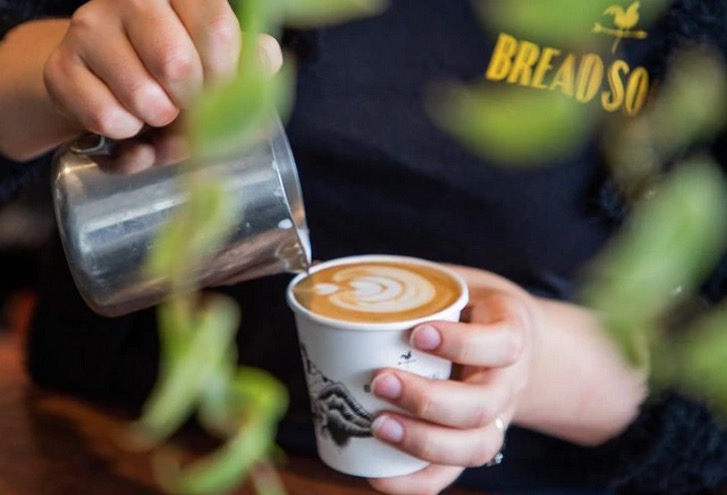Source: ABCnews
Your morning coffee or the next cocktail on a night out could be about to cost you more, thanks to some lingering effects of the pandemic.
Some businesses have already introduced price hikes due to the rising costs of goods, combined with businesses struggling to find staff because of ongoing border issues.
But it is expected to get worse and more widespread soon.
Restaurant and Catering Industry Association chief executive Wes Lambert said people could pay up to 20 per cent more than what they have in the past.
“Consumers will need to prepare their wallets for increased menu prices into 2022,” he said.
“It certainly is a continued covered hangover for the industry.”
One business that is putting up its prices straight away is Bread Social — raising costs at its Byron Bay and Tweed Heads stores by 5 per cent for the first time in several years.
Director Sam Saulwick said the increasing cost of supplies and having to make wages attractive to hire staff had left him no choice.
“We’re having to make some quick and drastic changes to make sure that we aren’t going backwards ourselves,” he said.
“I think that’s something you’re going to see across the board.
“I just don’t think long term people are going to be able to weather that ongoing costs without passing it on.”
It is a similar story in Victoria.
Tanya Hanouch runs a wine bar called Wolfe & Molone, and recently increased the cost of drinks and food.
She said it was a fine balancing act at the moment.
“The question is how much will the consumer or our patrons tolerate those those price increases,” she said.
“Will dining become a special occasion?
“I really think the landscape of dining has changed fundamentally since since the pandemic.
“But I remain positive, because we’ve got such a wonderful community where we are, so we will see what happens.”
A workers’ market
Pre-COVID, Mr Saulwick said the Bread Social often found bakers and pastry chefs by word of mouth, but the pandemic had changed the hiring process.
He said he published a baking position on a job advertising website and thought something was wrong when he only had two people respond, both living overseas.
“I actually went and rechecked to make sure I put in the correct contact details because we just weren’t seeing anything coming through,” he said.
The Restaurant and Catering Industry Association estimates there are about 100,000 jobs that are currently vacant.
The business is also looking for staff to operate its new store that will open on the Gold Coast soon.
For some of the positions, the wages are about 15 per cent higher than usual.
The wages on offer are up to 15 per cent more than usual on most of the positions because staff are in short supply.
Mr Saulwick said it meant it was really a workers’ market at the moment.
“Employees are coming to employers and are dictating their terms rather than the other way around,” he said.
“There’s opportunities out there for anyone to really shop around.”
Ms Hanouch has had to reduce the number of days her wine bar is open because she cannot get enough staff.
At the moment she has four jobs to fill, including a kitchen hand.
“Early 2019 we were looking for kitchen hands and I would put an ad out … and we would get 20 to 30 emails come through in one day,” she said.
She put the same ad out nearly two weeks ago and included a pay rise of 25 per cent per hour, but not one person has applied for the job.
“I think with our internationals gone, with people still a little bit dubious about getting out and working again, it’s quite a dire situation for a lot of us in hospitality looking for staff,” she said.
Finding workers
The federal government has indicated more skilled workers could be allowed to travel to Australia from next month and Wes Lambert said the sector had to be prioritised.
“We need to get the tourism and hospitality industry fast tracked with special purpose visas … to get us up to a level of workforce so that we can be productive in 2022,” he said.
“We can’t just rely on Australians to fill these positions because the entire system was designed for a seasonal migrant workforce.”
He said the government has thrown everything “but the kitchen sink” at upskilling Australians, but it is not enough and does not help the current problem.
“Getting Australians skilled up and trained up is not an overnight activity,” he said.
“High-level kitchen and front-of-house assistant managers and executive chefs, that takes years and years and years of experience.
“I’m hoping that once the borders open up we can get more people on the front of house and cooking in our kitchens.”
Ms Hanouch is hopeful the staff shortage will disappear overtime as the borders open up, but she said the wage increases are here to stay, which means customers will pay more.
“It’s really hard … but it’s not all doom and gloom … people are getting behind small businesses and so we’re quite lucky and we just hope people keep coming back,” he said.


